Technical guidelines to develop and implement methane-reducing feed additives for ruminants
Flagship Goal: To accelerate the development and use of feed additives to reduce global enteric methane emissions from livestock.
Methane emissions from ruminants have become a critical target in global efforts to combat climate change. Modifying rumen fermentation through feed additives has emerged as a promising strategy. Despite decades of research, only a few additives have shown substantial reductions in methane emissions or have reached the market. Recent assessments (Hegarty et al., 2021) reveal a limited availability of effective feed additives and highlight numerous challenges such as varying efficacy and applicability across different production systems.
The Feed Additives Flagship Project aims to aid scientists and industry leaders to develop effective feed additives to mitigate enteric methane. The Technical Guidelines to Develop and Implement Antimethanogenic Feed Additives have been prepared as a collection of 6 papers published as a Special Issue of the Journal of Dairy Science. Each paper focuses on providing technical recommendations for the development and implementation of antimethanogenic feed additives at different levels: i) identification of bioactive compounds (Durmic et al., 2025); ii) testing at animal level (Hristov et al., 2025); iii) model development (animal, farm; Dijkstra et al., 2025); iv) uncovering the mode of action (Belanche et al., 2025); v) registration and regulation (Tricarico et al., 2025); and vi) carbon accounting (del Prado et al., 2025). The preparation of the guidelines relied on the contribution of 60 researchers from 46 institutions across 23 countries, representing current consensus within a globally active network of scientists covering different expertise in investigating antimethanogenic feed additives.
In February 2025 a webinar was held on the “Technical guidelines to develop and implement methane-reducing feed additives for ruminants”.
A recording of the webinar is now available to view here.
The Technical Guidelines detail the latest technical recommendations on the pipeline to develop and implement feed additives to mitigate enteric methane emissions from ruminants.
You can view the Journal of Dairy Science – Special Issue: Feed Additives for Methane Mitigation HERE or view the individual papers as shown below.
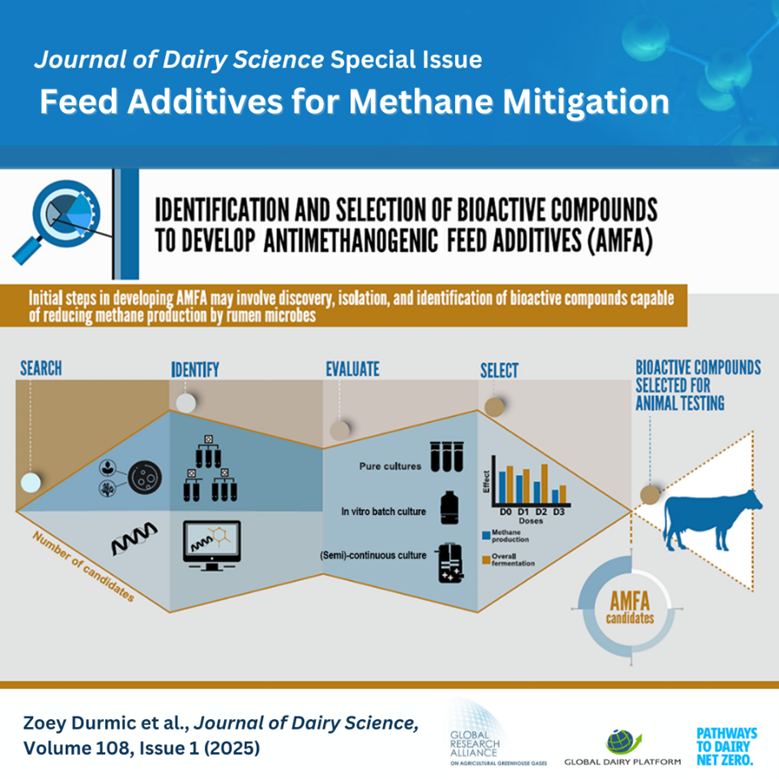

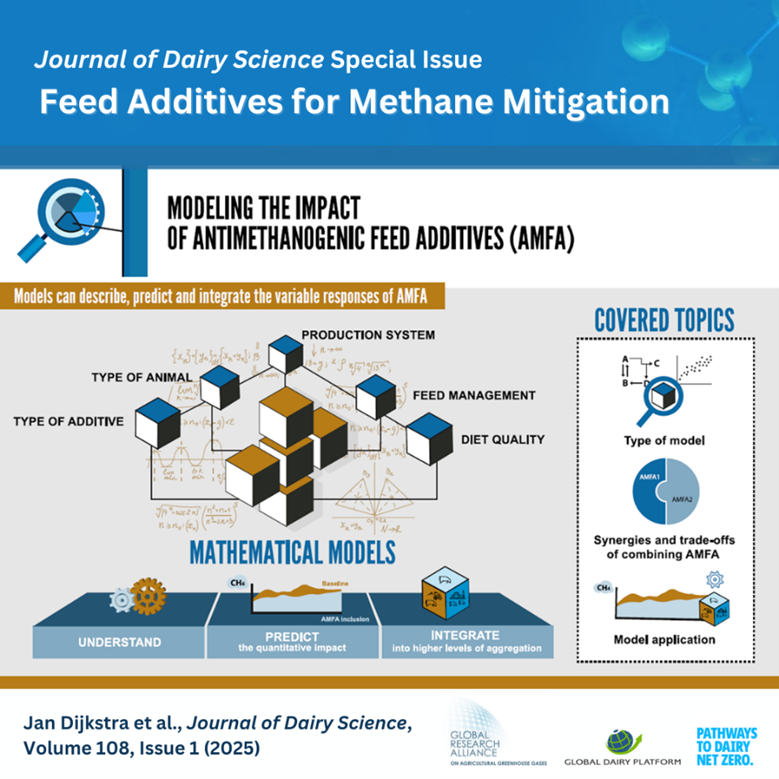
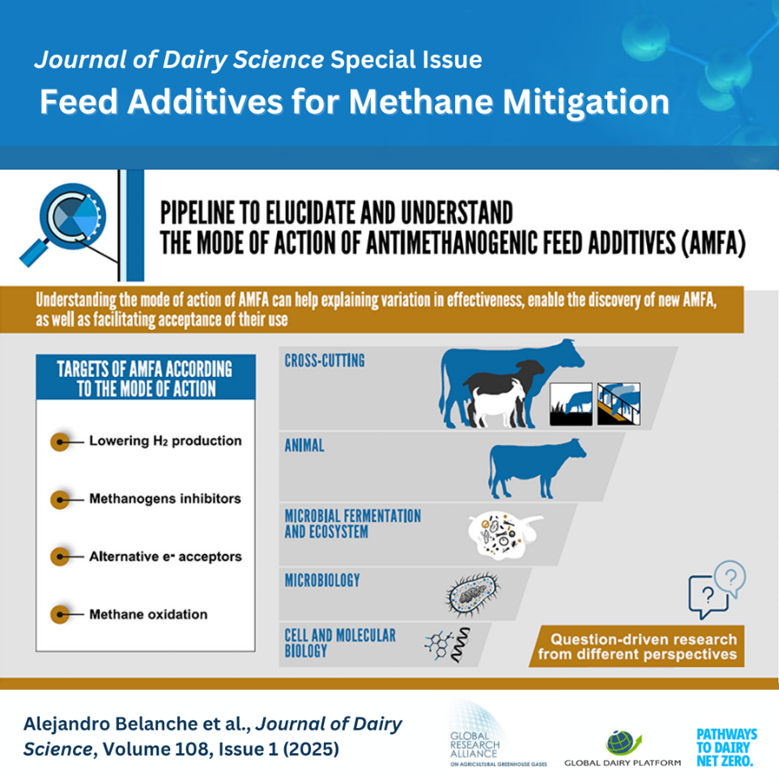
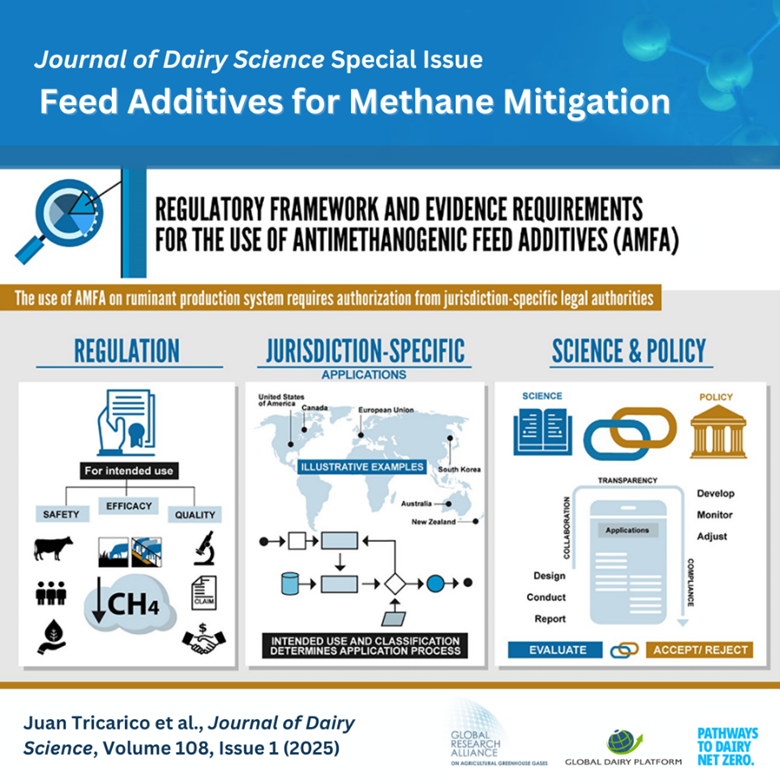
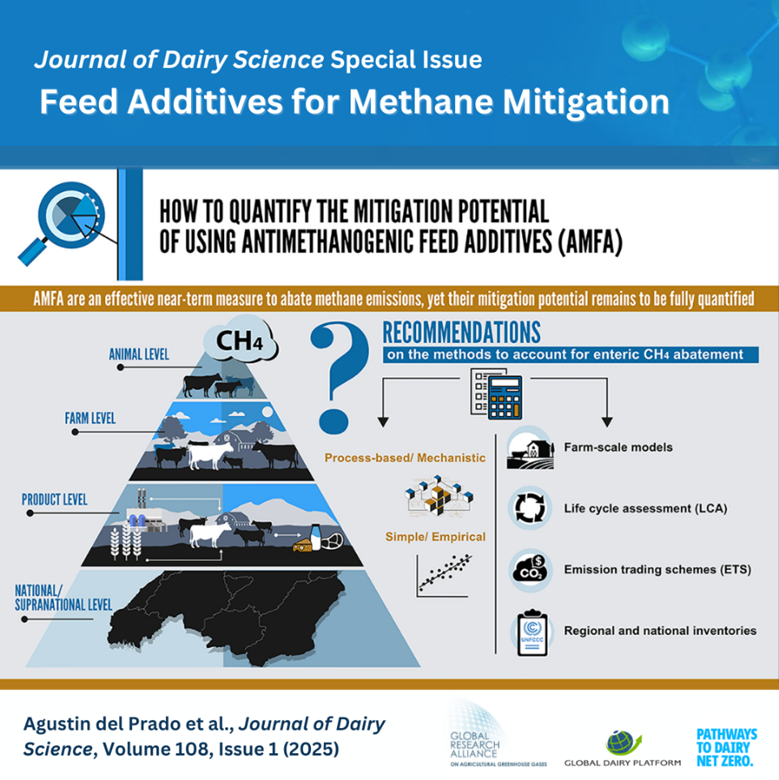
Contact the Project Leaders for further information:
David R. Yáñez-Ruiz (CSIC, ES) [email protected]
André Bannink (WUR, NL) [email protected]
Video and figures credits: Florencia Garcia and Yelena Grigorenko
